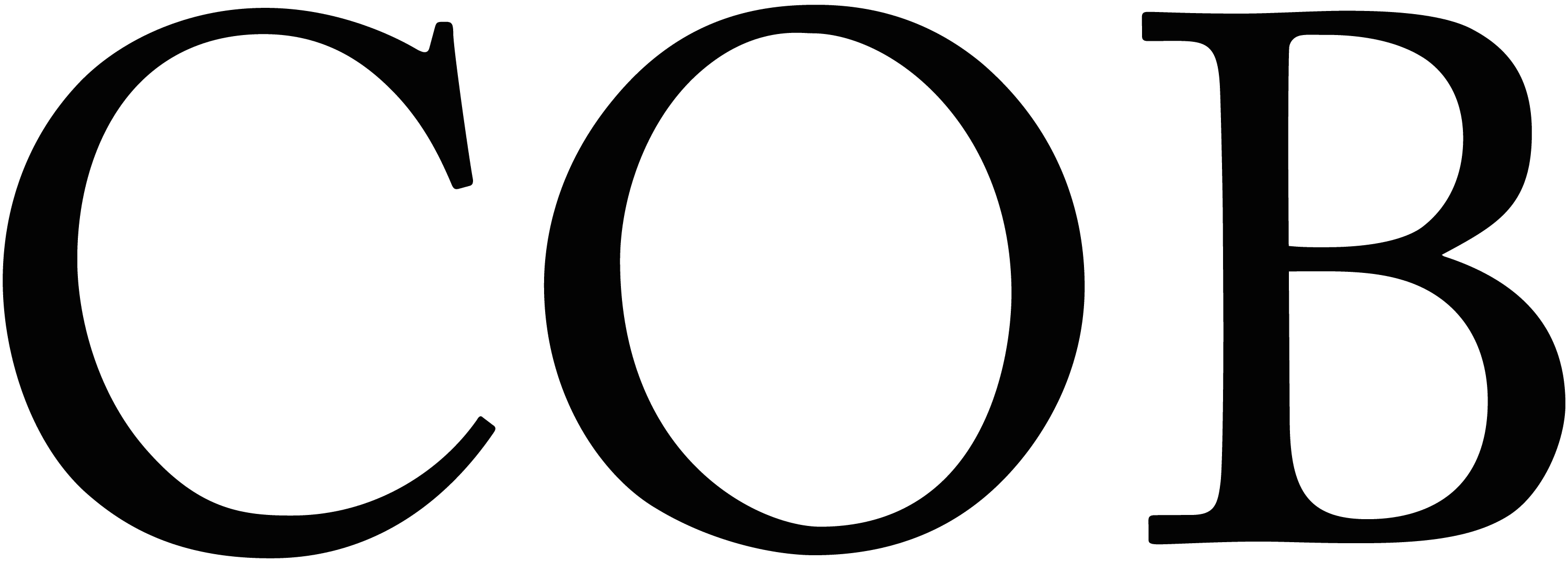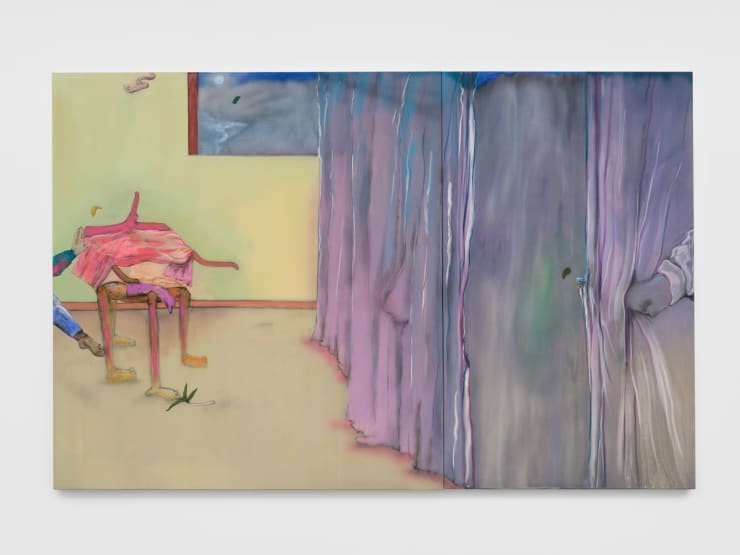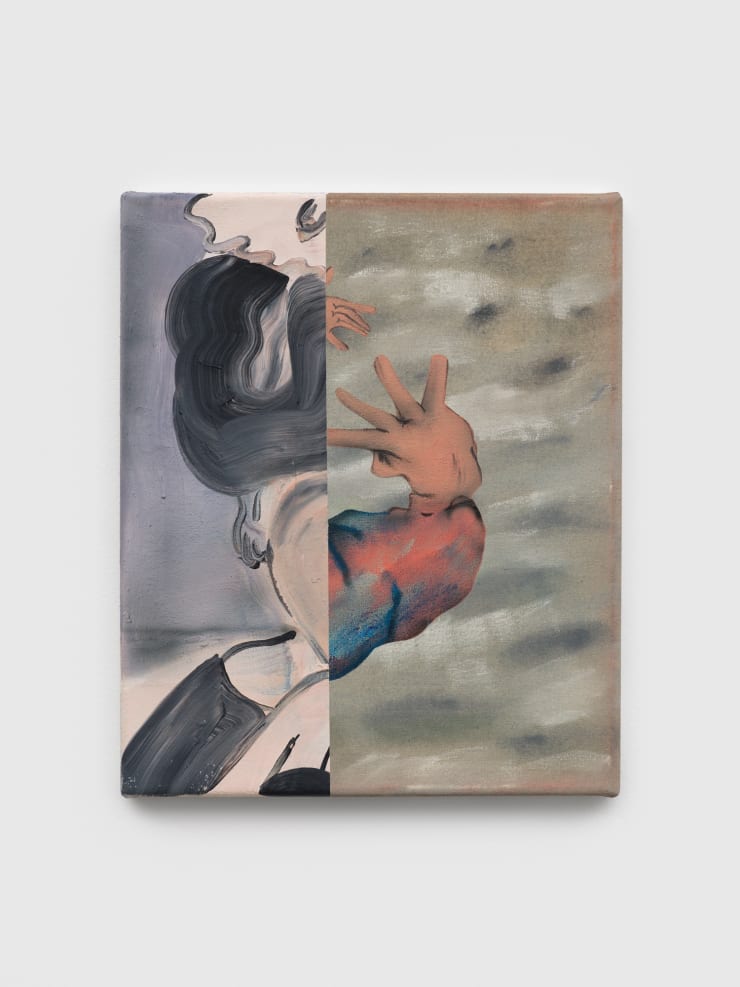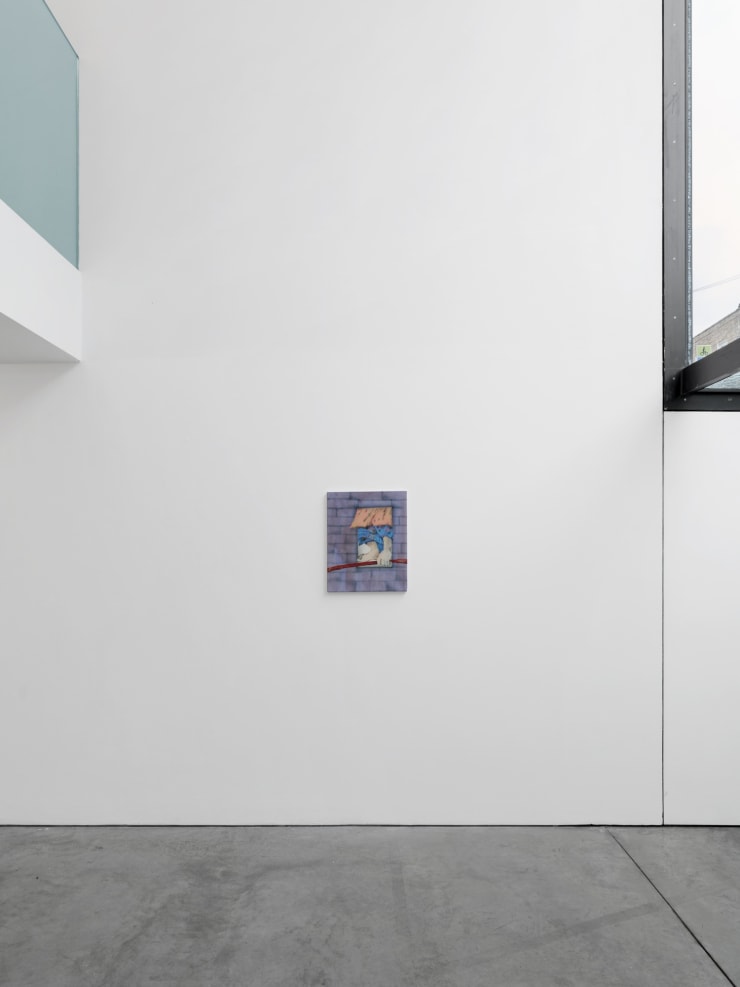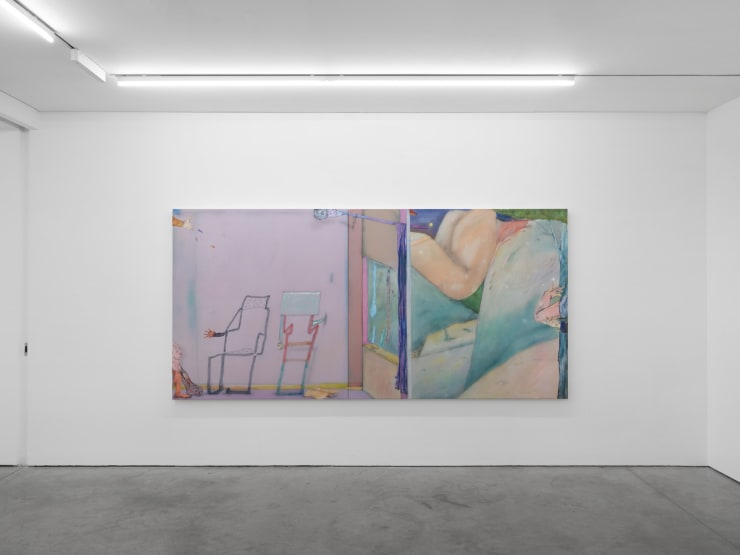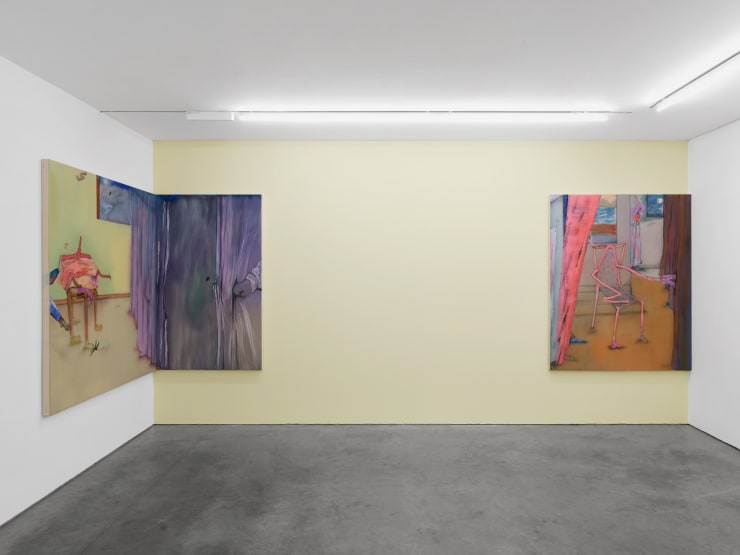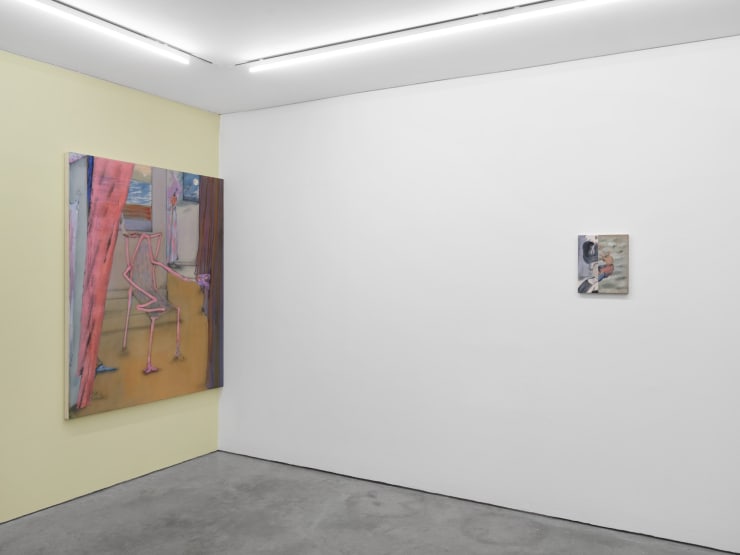Bruised: Fabian Treiber
Busywork and Bruised continue the gallery's dual exhibition programme, conceived to present the artists and their respective practices in tandem. Whilst exhibitions are to be experienced individually, they are curated to remain in dialogue with one another; the work suspended, in ‘conversation’.
Both Casey and Treiber’s work play with that which is recognisable and empty it of its familiarity, forcing the viewer to reconceptualise our relationship to these items and spaces. Taken together, their work reflects and refracts a similar preoccupation with specificity and absence and creates a shimmering dialogue categorised by surreal voids.
Fabian Treiber | Bruised | Gallery Two
Exhibition Text by Louise Parfitt
Cob gallery is pleased to present ‘Bruised’, the debut UK solo exhibition of German artist Fabian Treiber. Embracing a spontaneous and uncharted approach to image-making, Treiber’s work, rooted in rigorous formal exploration, is showcased here through a series of large-scale diptychs and smaller paintings that reify a speculative vision oflandscape and space. Within these works, an instinct for narrative defers to the imprints of process and time, memory and emotion.
Executed on unprimed nettle canvas, Treiber cultivates a dialogue between surface and pigment, allowing this interaction to guide the painting process. Beginning with a colour tone, the fibrous surface of the canvas acts as a receptive medium, where thin, luminous deposits of pigment saturate and stain the weave, transforming the fabric into a hue of its own. Treiber has developed a practice that acknowledges the medium’s agency as both a conveyor and collaborator, with colour functioning as a carrier of emotional and psychological charge – the wellspring from which imagery and structure emerge. Motif and landscape become secondary to the act itself, emerging organically in the painting process and nurtured by the artist’s interpretation of traces revealed within these forms.
Structured through discrete negotiations of colour, texture and form, the conjectural spaces within the exhibited large-scale diptychs arise from these formal inquiries. In certain areas, velvety fusions of colour saturate the canvas, casting a sable glow across horizon lines that extend throughout the works; elsewhere, stippled and filamented brushstrokes impart a tactile momentum to organic forms, evoking the contours of rugged topographies, meandering bodies of water and verdant stretches of vegetation. Ambiguous architectural frameworks materialise in motifs such as windows, doorways and rooftops, establishing contrasts between interior and exterior spaces while seamlessly uniting them within a continuous scene. Eschewing reference imagery in favour of preliminary written notes, Treiber’s paintings carry a singular consciousness, distilling traces of the familiar to interrogate and expose the inherent precariousness of this constructed pictorial order.
Working within cycles of painting, Treiber’s latest body of work introduces, for the first time, a fragmented human presence into his otherwise uninhabited terrains. Disembodied hands and arms transpose themselves from surface to surface, assuming the role of silent stagehands that guide the viewer through scenes in transition. Straddling the line between the surreal and the grotesque, these fugitive limbs establish a new visual grammar within Treiber’s painterly lexicon, articulating conditions that resist straightforward representation: fear, desire, affection – the myriad unspoken urgencies that dwell within the human psyche. As Treiber himself notes, they ‘function as something we know, we can read, and which literally address us. They have the potential to describe a certain moment that is about to expand.’ Far from merely animating the canvases, they become conduits for a deeper process, positioning painting as a medium capable of revealing the ineffable and latent dimensions that underpin all things.
While limbs evidence one aspect of the anima in Treiber’s paintings, inanimate objects, imbued with an uncanny vitality, become proxies for human presence. Candles lean precariously from their holders, while chairs stand immobilised in frigid inertia, as though burdened by their compliant objecthood. Alienated from Treiber’s unmoored limbs, a divided sense of self manifests – one that appears to wrestle with the desire for control and a subconsciousimpulse to surrender to the unknown. This vertigo of possibility is embedded within the very framework of Treiber’s intuitively guided decision-making. The artist likens it to the ‘call of the void’ – that intrusive, subterranean whisper that tempts our better judgement to deviate. These choices infuse Treiber’s introspective spaces with a subtle mutability, where the uneasy alliance of command and freedom, action and restraint, seems perpetually poised to rupture.
A series of smaller paintings executed on linen canvas infuses the artist’s work with new layers of disruption and vulnerability. Employing a raw alla prima technique, Treiber draws from his personal image collection as foundational material, often enlarging fragments of photographs, cutting them up and recombining them with other images to create obscure, unsettling atmospheric moments. Within this tense unity, a poetic framework emerges, imbuing the scenes with a dynamic energy that harbours an urge toward expansion. As suggested by the exhibition’s title, ‘Bruised’, Treiber’s paintings occupy narratively unstable situations that swell with tension and hover on the cusp of becoming.
Press
-
 Fabian TreiberBeyond The Line, 2024Acrylic, Ink, Oil Crayon and Pastels on Nettle110 x 200 cm
Fabian TreiberBeyond The Line, 2024Acrylic, Ink, Oil Crayon and Pastels on Nettle110 x 200 cm
43 1/4 x 78 3/4 in -
 Fabian TreiberBruised, 2024Acrylic, Ink, Oil Crayon and Pastels on Nettle150 x 240 cm
Fabian TreiberBruised, 2024Acrylic, Ink, Oil Crayon and Pastels on Nettle150 x 240 cm
59 x 94 1/2 in -
 Fabian TreiberCan't Barely Walk, 2024Acrylic, Ink, Oil Crayon and Pastels on Nettle150 x 120 cm
Fabian TreiberCan't Barely Walk, 2024Acrylic, Ink, Oil Crayon and Pastels on Nettle150 x 120 cm
59 x 47 1/4 in -
 Fabian TreiberDwellers 3, 2024Acrylic, Ink, Gouache, Oil Crayon and Pastels on Nettle30 x 25 cm
Fabian TreiberDwellers 3, 2024Acrylic, Ink, Gouache, Oil Crayon and Pastels on Nettle30 x 25 cm
11 3/4 x 9 7/8 in
